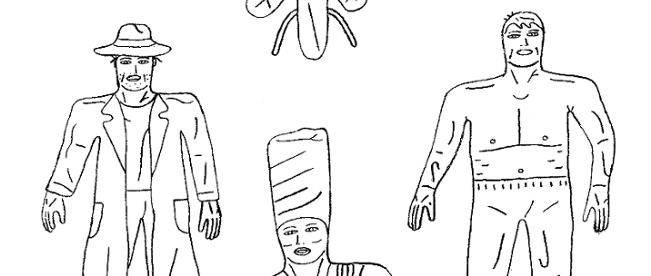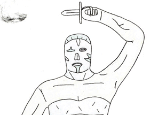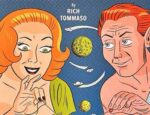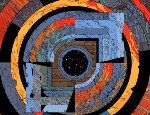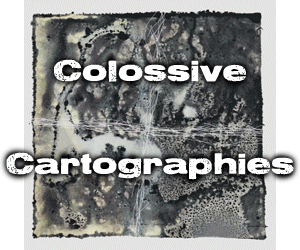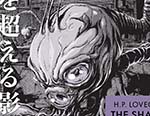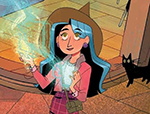Carlos Gonzalez’s Test Tube is an experiment in every sense of the word – and one that won’t leave its readers unchanged.
In the realm of the Arts-with-a-capital-A, work has historically been judged on its mutually agreed permanence – the lasting impression it leaves on the world and its denizens. Such thinking has only recently been applied to comic books, once the domain of disposable, lurid pulp entertainment.
The creation of a comic book canon – and the flood of graphic novels into reputable bookstores everywhere – has deservedly brought a number of important works to a larger audience and elevated critical thinking on the medium.
However, Carlos Gonzalez’s Test Tube (originally self-published, now available in a compendium from Floating World Comics) defies art’s centuries-old drive towards public adulation. While such works strive to capture the essence of an experience, Test Tube daringly embodies a transformative experience in itself – one that’s closely tied to comics’ grimy, ink-splattered roots.
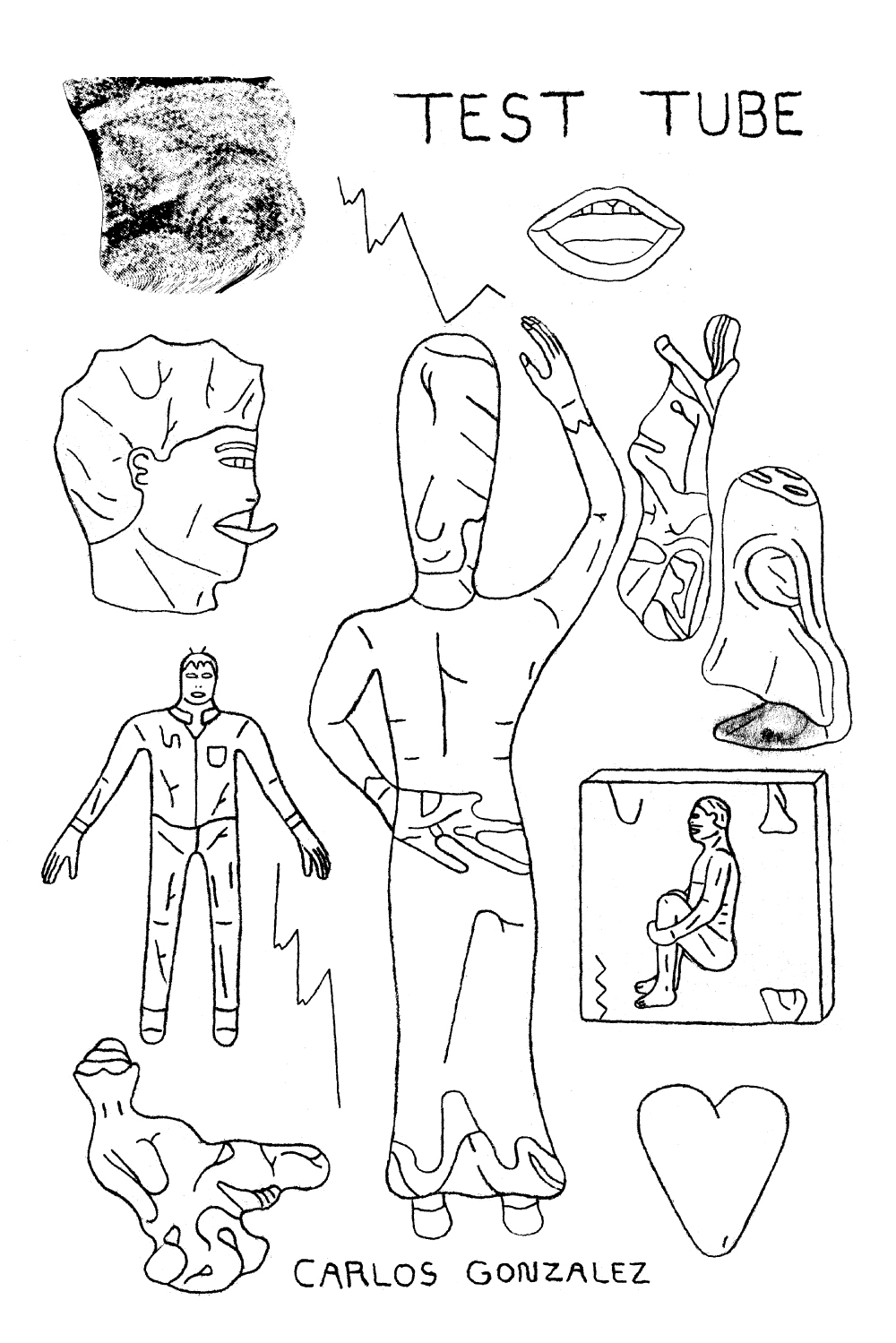 Test Tube is cloaked in the trappings of science fiction (or “Fictional Science,” as Noel Freibert refers to it in his introduction). Of course, this is a genre in which transformation is often external as well as internal, and one that’s also had to fight its way into the gilded hallways of the cultural Establishment.
Test Tube is cloaked in the trappings of science fiction (or “Fictional Science,” as Noel Freibert refers to it in his introduction). Of course, this is a genre in which transformation is often external as well as internal, and one that’s also had to fight its way into the gilded hallways of the cultural Establishment.
But Test Tube‘s tactile feel – the way its smudged newsprint pages recall the ideally uninhibited expression of photocopied zines and minicomics – is at least as essential to its so-called “plot.”
Gonzalez eases us into his mad world through the mundane lives of familiar characters. Peter works as a movie projectionist and spends his nights at the local “gentleman’s club.” Jeff, mired in a degrading minimum-wage serving job, is too exhausted to do anything other than note that his existence is expiring without a mark. And Jill spends her days selling her father’s old records at the flea market while hoping to meet someone to shock her out of her routine.
However, we’re aware from the first page that this isn’t a world that plays by the usual rules. Strange shapes and magazine clippings occupy the universe, seemingly unnoticed by its inhabitants. The effect is somewhat similar to Steve Ditko’s psychedelic interpretation of Dormammu’s Dark Dimension in early episodes of Doctor Strange – one of the many artistic icons brought to mind by Gonzalez’s style and content. In addition to echoes of other ’60s wunderkinds, Test Tube shares DNA with more modern talents such as Gary Panter and Dash Shaw.
This is the first long work from Gonzalez, following contributions to anthologies such as Kramer’s Ergot, and one might expect that such influences would leave the resulting work impotent. However, Gonzalez’s fully formed aesthetic serves as a lightning rod for this diverse potpourri, catalyzing it into something much more than the sum of its parts.
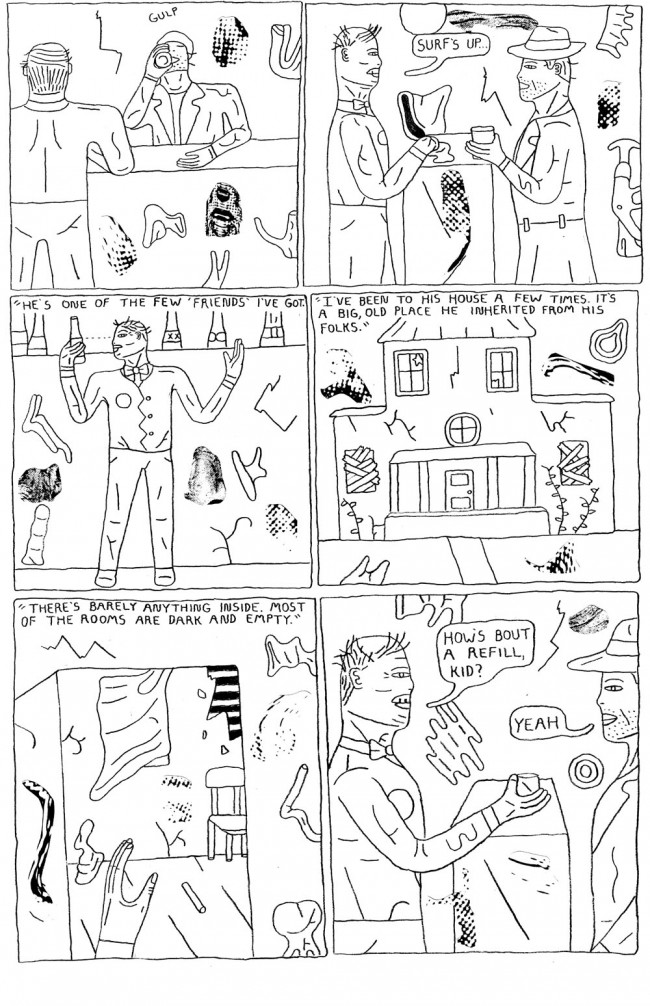 The main action also draws on a variety of influences, while never allowing a sense of familiarity. Jill’s seemingly chance encounter with abstract poet Gene Dennel brings to light buried experiments and forgotten destinies. The resulting sequence of events has lasting ramifications for each of our characters, although their significance may not be immediately clear. Is it a tale of the freedom of uninhibited passions, or a cautionary tale of dangerous obsessions?
The main action also draws on a variety of influences, while never allowing a sense of familiarity. Jill’s seemingly chance encounter with abstract poet Gene Dennel brings to light buried experiments and forgotten destinies. The resulting sequence of events has lasting ramifications for each of our characters, although their significance may not be immediately clear. Is it a tale of the freedom of uninhibited passions, or a cautionary tale of dangerous obsessions?
As any good scientist should, Gonzalez simply provides the materials and the process (formalized by the artist’s rigid six-panel page layout): the reader provides the essential catalyst. In the end, the point isn’t the experiment itself, but rather the results. And it’s these that each of Test Tube‘s subjects will carry with them into a brave new future.
Carlos Gonzalez (W/A) • Floating World Comics, $14.95





